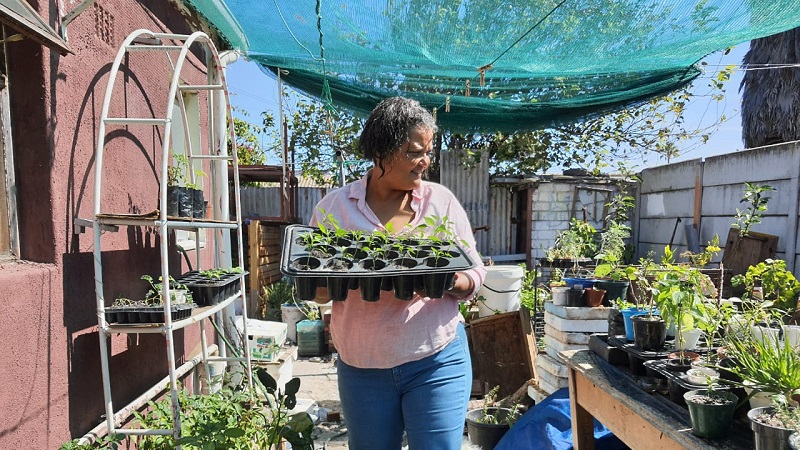Just over a year ago, on the 23rd March, President Cyril Ramaphosa announced that the country would go into a 21 day lockdown in a bid to flatten the curve of coronavirus infections. However, a year later citizens still find themselves under alert level 1 of the national lockdown.
For many communities on the Cape Flats adopting a sustainable feeding method during the national state of disaster was a precarious task but not for the Bonteheuwel Community Forum. Chairperson of the forum, Henriette Abrahams said they have always been one step ahead.
“We kept ourselves abreast with news happening globally and we immediately sprung to action. We called on friends, family, neighbors, alumni and any organization that was willing to invest in our community,” described Abrahams.
However, Abrahams quickly realized that food parcels were not sustainable and she devised a second plan.
“The alternative was to plant food gardens, so that we could secure our own food and ensure that it is nutritious and beneficial to our youth. Most of these parcels or hand-outs aren’t very healthy and that’s where we wanted to create a change,” stated Abrahams.
The February 2021 National Income Dynamics Study – Coronavirus Rapid Mobile Survey (Nids-Cram) Wave 3 report shows that in December, one in six households reported that a child had gone hungry. On average, hunger has also now increased: one in five families have reported going hungry.
“Our gardens became a way out for many of our children. They could learn, eat and more importantly play. It was a refuge,” smiled Abrahams.
Most of the gardens in the area are situated at schools or open lands, that were previously used as dumping grounds. Abrahams explained when the vegetables are harvested, they are used for the feeding schemes in Bonteheuwel and/or the surplus is sold.
“The method we have adopted creates sustainability. The money that we receive from selling the vegetables is pooled back into the community and used to acquire more seedlings, compost and other essential items that will benefit the community,” explained Abrahams.
Abrahams encouraged mothers on the Cape Flats to bring their children back to their roots.
“We need to get our hands dirty to keep their [children] minds clean. We need to teach them what we were taught by our forbearers. Teach them how to survive off the land. The future is not only female but it’s farming too,” chuckled Abrahams.
VOC






 WhatsApp us
WhatsApp us 

